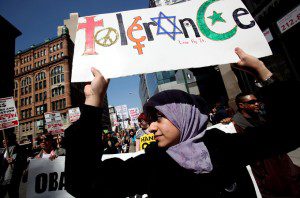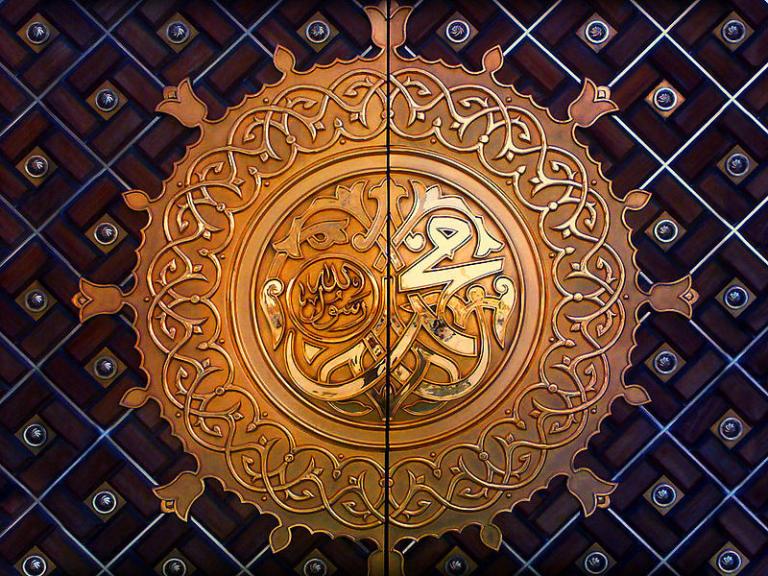 Unique among Western and industrialized nations, the US boasts a high rate of people who say they believe in God. Not all of these people regularly go to church, synagogue , mosque or temple, but over 90% of adult Americans say they believe in a Divine Being. The US is the most religiously diverse country in the world and the most religiously devout country in the West. I believe that this is because religion has remained in the realm of the marketplace of ideas since the time the first Puritans – who after all left Britain to preserve what they believed was their right to separate church from state – arrived on American shores. Their whole purpose in leaving the UK was so that they can protect their freedom to practice their religion the way they saw fit – not the way their government or any other legislative body saw fit.
Unique among Western and industrialized nations, the US boasts a high rate of people who say they believe in God. Not all of these people regularly go to church, synagogue , mosque or temple, but over 90% of adult Americans say they believe in a Divine Being. The US is the most religiously diverse country in the world and the most religiously devout country in the West. I believe that this is because religion has remained in the realm of the marketplace of ideas since the time the first Puritans – who after all left Britain to preserve what they believed was their right to separate church from state – arrived on American shores. Their whole purpose in leaving the UK was so that they can protect their freedom to practice their religion the way they saw fit – not the way their government or any other legislative body saw fit.
Indeed, the Protestant Reformation, of which the Puritans were inheritors and champions, could rather simplistically be explained as a religious revolution that occurred when an increasingly educated class of citizens decided that they would no longer accept what they saw as interference by the institution of the Catholic Church into the religious life of believers. Top down institutions, be they absolute monarchies, or the papal system, inherently had a corrupting influence on the moral beliefs of regular citizens. The early European colonizers of the US had as their main moral objective the protection of church and state. This resulted in a peculiarly American form of creating religious communities for the people, by the people and of the people.
This is the religious culture that has framed the understanding of Millennial Muslims to their relationship with religious institutions – whether they are converts, children of converts, children of immigrants or children of second-generation immigrant-origin parents. Framing American religious culture in this way helps us to understand the phenomenon of unmosquing, the rise of 3rd spaces, and ultimately, can help institutions develop religious communities that may lead to the remosquing of Millennial Muslims.
 Millennial Muslims are living in a time and a place where diversity and freedom of expression are celebrated as a virtue. Where sexism, racism, classism and ethnocentrism are legally, officially and culturally discouraged. Where social media has given an outlet & platform to marginalized voices and democratized public discourse. And their peers are leaving religion altogether for the first time in American history (over a quarter of Millennials say they are “nones” in religious affiliation). And they are the first group of immigrant-origin Muslims to be part of multi-generational Muslim families, mosques & institutions.
Millennial Muslims are living in a time and a place where diversity and freedom of expression are celebrated as a virtue. Where sexism, racism, classism and ethnocentrism are legally, officially and culturally discouraged. Where social media has given an outlet & platform to marginalized voices and democratized public discourse. And their peers are leaving religion altogether for the first time in American history (over a quarter of Millennials say they are “nones” in religious affiliation). And they are the first group of immigrant-origin Muslims to be part of multi-generational Muslim families, mosques & institutions.
In the years after 9/11 I noticed something peculiar in my own generation (I straddle the line between Generation X and the Millennials, and here I’m talking about both groups). In any case, what I noticed is that younger, American born or raised, well-educated working professionals, seemed to be leaving the mosque in droves. Their community service, artistic endeavors, political activity and even spiritual revival occurs outside of the mosque. Though many mosques continue to be sustained by constant waves of immigrants, the fact remains that many mosques have not been able to cultivate generational loyalty. Further, many American Muslims between the ages of 18-40 live where their jobs and universities are; not necessarily where their parents raised them. As they criss-cross the country, Millennials are looking for welcoming spiritual communities and don’t join the mosques that are unable to provide spiritual care for them. Before we talk of the remosquing of these generations, which I do think is critical, we must identify and acknowledge the reasons why Millennials and Gen Xers are becoming unmosqued. Among them are:
- Mosques are simply not welcoming for many people who don’t see financial or leadership transparency
- Racism & ethnocentrism are off-putting to Millennials who are the most racially diverse American generation in history
- Young people don’t feel heard by mosque leaders
- Women’s spaces are typically unwelcoming
- The prevalence of spiritual abuse from leaders ill-equipped to handle social problems of their congregants
I’m aware that many in my generation are keen to blame The Uncles for everything that’s wrong with mosques and walk away from mosques. Many are still involved in the Muslim community by developing and building other critically necessary institutions, shaping new narratives, deepening the creative arts, challenging Islamophobia, and so on. As the daughter of Muslim activists who’ve sacrificed all their lives for the sake of our communities, that is not my position; I know I stand on the shoulders of giants. I try to follow the Prophetic tradition that teaches us, “He is not of my community who does not respect the elderly nor show kindness to the young.”
However, I have faced my own difficulties regarding mosques, not least because of my gender. Based on my experiences, the physical spaces women & girls occupy reflects the value mosque leaders believe they add to the community. I run a website called Side Entrance and this year, my goal has been to focus on solutions. To that end, I have been polling women about what it would take to get them to remosque. One woman – the daughter of an imam, and who is currently is on the board of her local Islamic school) told me that when she was a teenager, her mosque was a refuge for the youth. They would meet there for fun. Play basketball, have a poetry slam, enjoy ice cream after Maghrib. But leadership changed and the tone of the mosque changed along with it. The mosque was no longer Dar Assalam, an abode of peace, for these youth. So they left and haven’t returned.
Because I don’t want to only highlight the difficulties of this situation, and I do believe that mosques must play a stronger role in providing spiritual care to American Muslims, I’ve come up with some modest practical steps to take that might help create a welcoming abode of peace by. Please share your thoughts, add your own suggestions and give feedback in the comments area below.
Modest Practical Steps for Mosques to Take
1. Develop and offer climate surveys, asking young people what their needs are & try to implement them
2. Include young people in decision-making committees, or facilitate a way to have their voices be heard
3. Identify, train & hire imams who can offer pastoral care to the community
4. Diversify your sense of community – once a month have a congregation or imam swap with a mosque that has a different ethnicity
5. Make sure khutbah topics are relevant by soliciting feedback
6. Incorporate community service & interfaith activities as part of your mosque ethos
Millennials feel that that religious leaders are not equipped to offer pastoral care for a generation of Muslims dealing with mental or drug problems, domestic abuse, a rising divorce rate, generational gap between youth and parents, and an organized Islamophobia cottage industry. Millennials are flocking to 3rd spaces like Ta’leef Collective in California or the Nur Center in Virginia because mosques are no longer abodes of peace for them. If existing mosques are interested in cultivating generational loyalty among American Muslims, then reimagining how they can welcome back Gen Xers and their children, and become abodes of peace for Millennials must be a priority. Because this generation of American Muslims, and all those who will come after, are certainly operating within the framework of that peculiar American religious culture that encourages the creation of religious congregations for the people, by the people and of the people.
*This piece, based on my remarks at the 2014 ISNA Mosque Forum, is the second post in my Remosquing series. You can read the first post here.











